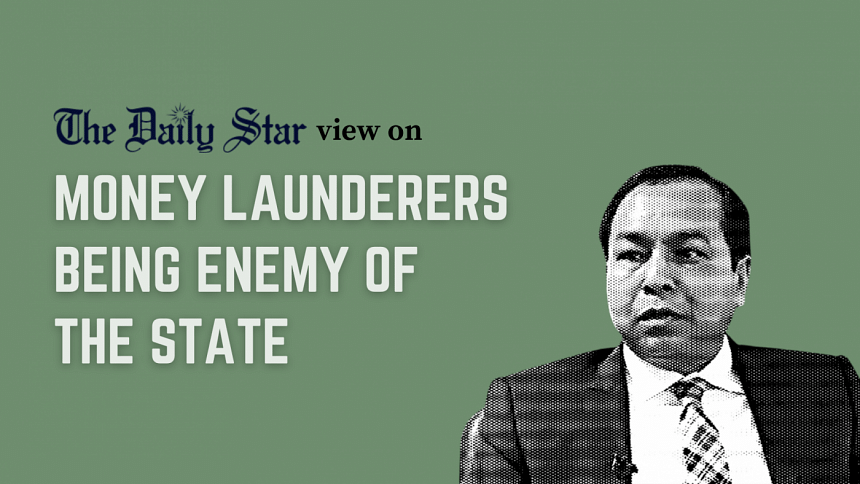One PK Halder down, how many more to go?

In a landmark judgment, a Dhaka court has finally sentenced PK Halder to 22 years in jail for money laundering and the possession of illegal wealth. In a country where money launderers are essentially given free rein to do as they please, we welcome the verdict against a man who has swindled at least Tk 3,500 crore out of the country over a decade – and left four non-banking financial institutions (NBFI) in ruins in the process. We also wholeheartedly agree with the observation of the court that money launderers are the enemies of the country and the nation. The question, however, remains: why are we doing so little to name, shame and take action against them? As we draw the curtains on the crimes of one man, we must ask, how many more PK Halders are out there looting state institutions and funnelling money through various nefarious means right under the noses of our regulators?
There can be no denying that PK Halder – despite his cunning and ingenuity in amassing such huge amounts of wealth illegally – was not an exception. An estimated $12-15 billion is smuggled out of the country every year, according to Transparency International Bangladesh (TIB). Meanwhile, the Global Financial Integrity (GFI), a Washington DC-based think tank that focuses on illicit financial flows, suggests that the amount of money lost annually to deliberate trade misinvoicing could exceed $14 billion by 2030. Over the past decade, despite numerous promises and policy changes, there has been a glaring lack of substantial progress in curbing money laundering. Lists of defaulters have failed to materialise, investigations have been stalled, and wings of investigators have been clipped. In fact, money launderers with political ties have been protected and pampered by the powers that be, time and time again. In the process, the integrity of our financial system has been severely compromised.
The consequences of unchecked money laundering are not merely financial. It erodes public trust in institutions, and the wealth syphoned off through money laundering could otherwise have been invested in education, healthcare, infrastructure, and other areas that would benefit our society as a whole. In essence, as the court has highlighted in its verdict, it is a betrayal of the people and the nation.
Effective anti-money-laundering measures require a concerted effort from all stakeholders – government agencies, law enforcement, financial institutions, and the judiciary. It is imperative that our government takes immediate and decisive action to rectify the situation. This includes strengthening regulatory frameworks, enhancing inter-agency cooperation, and ensuring that justice is swift and severe for those involved in money laundering.
The sentencing of PK Halder is a step in the right direction. But we must now begin the more difficult task of identifying and addressing the regulatory failures, inefficiencies and collusions that facilitated such huge sums of money to leave the country undetected in the first place. It should serve as a catalyst for comprehensive reform and a renewed commitment to eradicating money laundering from our society.


 For all latest news, follow The Daily Star's Google News channel.
For all latest news, follow The Daily Star's Google News channel. 










Comments